
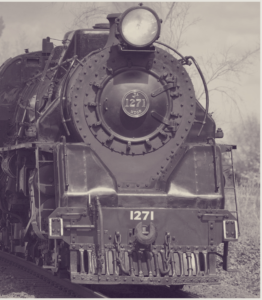
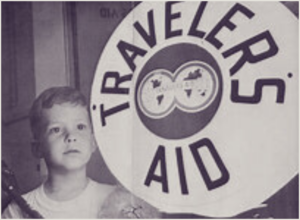
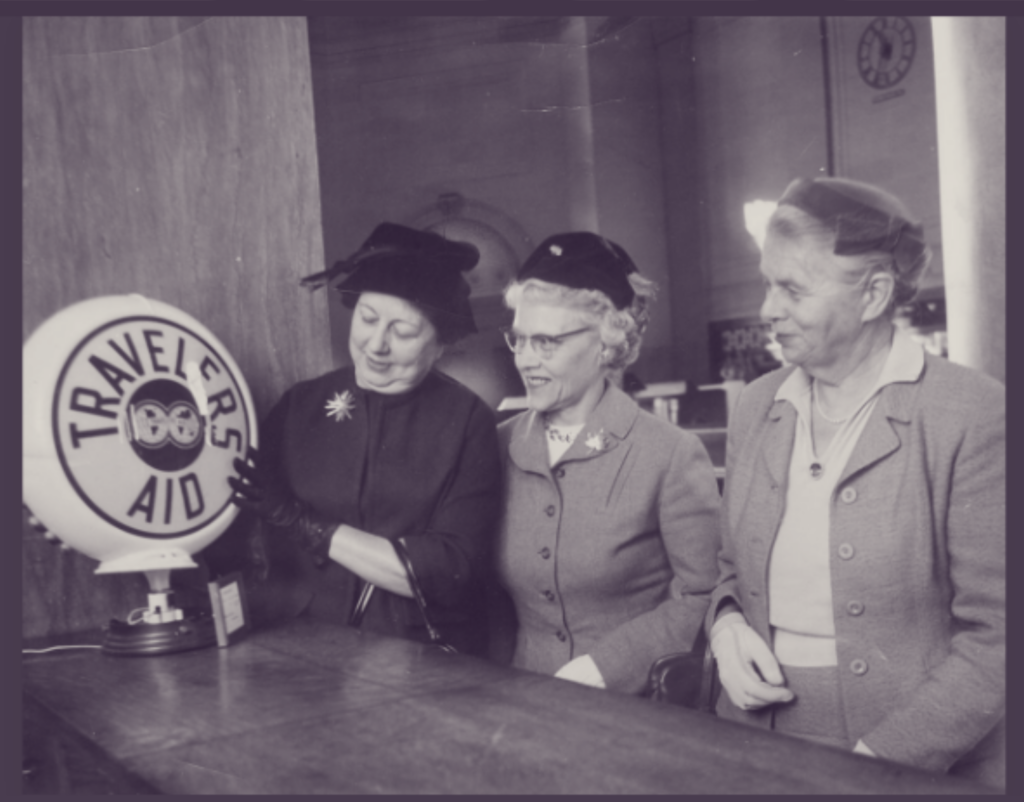
1925 – The Travelers Aid Society in Oklahoma City (now Upward Transitions, Inc.) was founded by a group of twelve women with a $3,600 allocation from the Community Chest (later known as the United Fund, now United Way of Central Oklahoma). The group was linked with the National Travelers Aid Society (later known as Travelers Aid Association of America, now Travelers Aid International) of intercity agencies in 1926 and was incorporated on June 21, 1927.
1933 – In the midst of the Great Depression, Travelers Aid Society left the local Community Chest.
1942 – A USO-Travelers Aid Service was opened and supported during the war period by USO funds until
1944 – When the Community Chest provided partial support in view of services rendered to non-service-connected persons.
1946 – Travelers Aid Society rejoined the local Community Chest which has funded the organization ever since.
1951 – Travelers Aid Society services were expanded at Union Railroad Station and the downtown bus station with the addition of volunteers.
1966 – Travelers Aid Society approached Will Rogers World Airport about establishing a presence at the new terminal building and a Travelers Aid globe and contact information were placed in the terminal near the phones on the lower level.
1973 – Travelers Aid Society established an information booth at WRWA with 11 volunteers.
1977 – A hotline to the Travelers Aid Society office was installed at the downtown bus station, and the Travelers Aid desk was closed.
1984 – The City of Oklahoma City Airport Trust constructed a new information booth for Travelers Aid volunteers.
1985 – Volunteers from the Temple B’nai Israel’s Men’s Club filled in for the regular airport volunteers on Christmas Eve and Christmas Day and have done so annually ever since through their Mitzvah Program.
1986 – The City of Oklahoma City Airport Trust approved funding for the volunteer coordinator position to increase the efficiency of the Travelers Aid Volunteer Program and to ensure proper training and coordination of volunteers.
1987 – Travelers Aid Society began additional services to assist those experiencing homelessness.
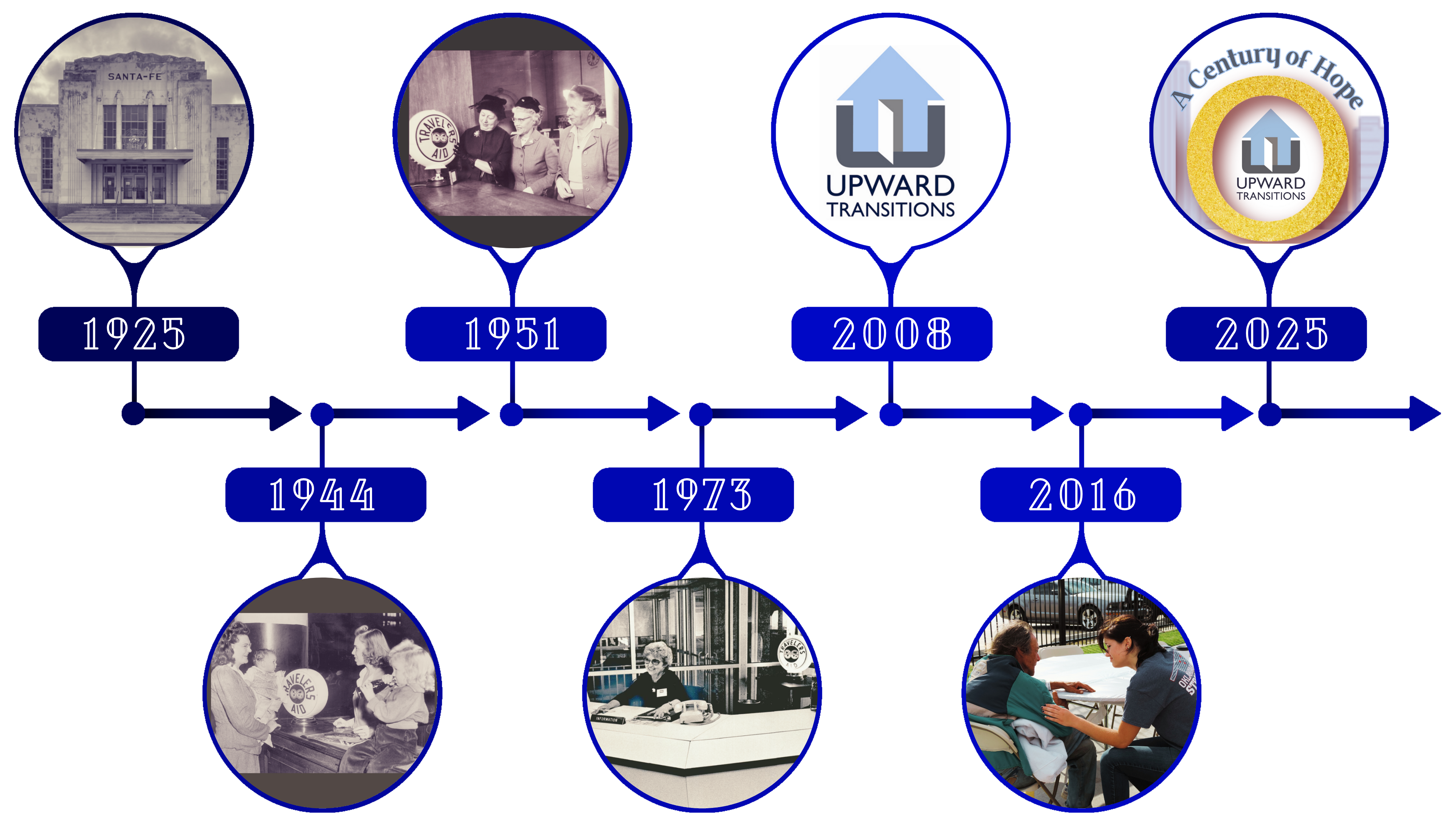
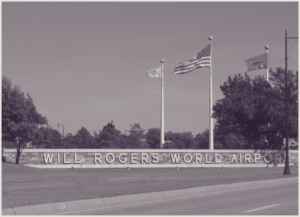
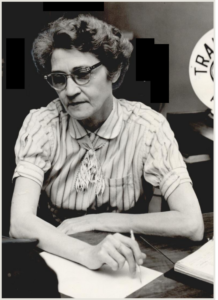

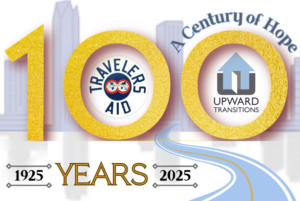
1990 – A new era for Travelers Aid Society began when Marie Hollenbeck became executive director and established Travelers Aid Society as the lead agency in Oklahoma City’s annual Homeless Survey conducted under the Mayor’s Committee for the Concerns of the Needy.
1991 – Travelers Aid Society started the REACH (Realistic Energy Aimed at Community Homeless) meetings for case management training and networking with funding through the Oklahoma City Community Foundation. The meetings were suspended in 2020 during the COVID pandemic.
1992 – Travelers Aid started the CCCARTS (furniture clearing house program) with Catholic Charities, City Rescue Mission, Community Counseling, American Red Cross, REST, Travelers Aid, and St. Vincent de Paul.
-Travelers Aid Society held its first major fundraising effort at Will Rogers World Airport, Baggage Claim 5.
-Travelers Aid Society started a transitional housing program.
2001 – Travelers Aid Society joined the Clearinghouse Network of social services agencies to eliminate duplicative services for those experiencing homelessness.
2004 – The airport administration asked Travelers Aid Society and the Oklahoma City Chamber of Commerce to merge the two volunteer programs.
-The first American Tourist fundraising event was organized by the BAS Pro Singles Group and held at the Santa Fe Train Station.
-Travelers Aid Society participated in its first United Way Day of Caring with volunteers completing improvements to the Travelers Aid Society office and one transitional home.
-TAS held its first client holiday party distributing sack lunches and gift bags with hats, gloves, and socks to more than 200 people.
2005 – Travelers Aid Society of Oklahoma City changed its name to Travelers Aid & Homeless Assistance Center.
2008 – Travelers Aid & Homeless Assistance Center changed its name to Upward Transitions, Inc. as recommended by the OKC LOYAL project group.
2016 – Upward Transitions updated its mission.
“To prevent generational poverty through community collaboration, emergency relief, and empowerment, therefore inspiring hope with our neighbors”